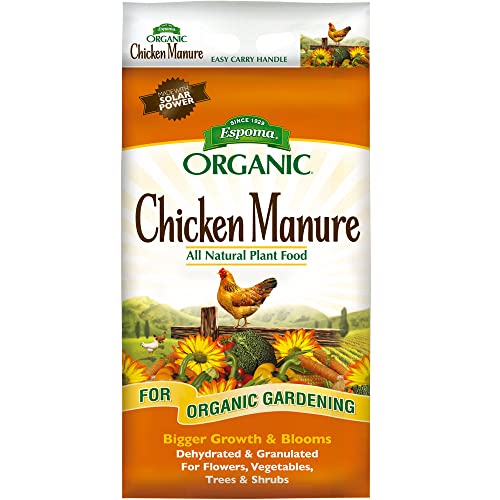
Discover the real scoop on why is organic fertilizer better than chemical fertilizer! Dive into the benefits for your garden, your health, and the planet.
So you’ve found yourself pondering the age-old gardening question: Why is organic fertilizer better than chemical fertilizer? Well, you’re in the right place!
We’re about to dig deep into the soil of this debate, unearthing the benefits that make organic fertilizers the unsung heroes of gardens everywhere. Stick around, and let’s get to the root of the matter!
Why is Organic Fertilizer Better Than Chemical Fertilizer?
Organic fertilizer is better than chemical fertilizer because it enriches the soil with essential nutrients and beneficial microorganisms, improving soil structure and fertility.
It’s also eco-friendly, posing less risk to water sources and wildlife. Unlike chemical fertilizers, organic options offer a slow release of nutrients, providing long-term benefits for plant growth.
Fertilizers play a crucial role in boosting plant growth and enhancing soil fertility.
The debate between using organic matter and synthetic fertilizers has been a topic of significant difference among home gardeners and agriculturalists alike.
This article aims to shed light on why organic fertilizers are a better choice for your soil and the environment.
What are Organic Fertilizers?
Organic fertilizers are derived from natural sources like animal waste, bone meal, and fish emulsion.
These fertilizers work in harmony with the soil structure, enhancing microbial activity and improving soil health.
Unlike inorganic fertilizers, organic products are rich in essential nutrients and natural forms of nitrogen, phosphorus, and potassium.
What are Chemical Fertilizers?
Chemical or synthetic fertilizers are inorganic materials manufactured through a chemical process, often involving petroleum products and ammonium nitrate.
These fertilizers offer a quick release of nutrients but come with a set of drawbacks, including potential harm to water sources and soil quality.
Advantages of Organic Fertilizers
Ready to discover the perks of going organic in the fertilizer department?
The advantages of organic fertilizers go beyond just giving your plants a nutrient boost.
From being kind to Mother Earth to playing the long game for your garden’s health, organic fertilizers are packed with benefits that you’ll want to know about.
So, let’s dig in and unearth the reasons that make organic fertilizers the true garden MVPs!
Environmental Impact
One of the most compelling reasons to choose organic fertilizers is their low environmental impact.
They improve water retention and are less likely to cause algae blooms in nearby water bodies.
Soil Health
Organic fertilizers like cow manure and chicken manure enrich the soil with organic carbon, enhancing its structure and fertility.
The slow-release formula of organic matter provides long-term effects, ensuring that plants receive enough nutrients throughout the growing season.
Safety and Nutrient Availability
Organic fertilizers are a better option for home gardeners concerned about the health of their family and pets.
They are rich in beneficial microorganisms and essential nutrients, offering a balanced nutrient ratio for plant roots.
Disadvantages of Chemical Fertilizers
Hold onto your gardening gloves, because we’re about to dive into the not-so-rosy side of chemical fertilizers.
While they might promise quick, lush growth, there’s a hidden cost that’s worth considering.
From environmental woes to potential health risks, chemical fertilizers come with a set of drawbacks that might just make you think twice.
Let’s peel back the layers and take a closer look at why chemical fertilizers might not be the garden saviors they’re often made out to be.
Environmental Harm
The use of chemical fertilizers has been linked to significant increases in greenhouse gases and contamination of water sources.
The high concentration of chemicals like ammonium phosphate can lead to soil degradation and harm beneficial microbes.
Short-term Effectiveness
While synthetic counterparts may offer high yields in simple terms, their effects are short-lived.
The frequent application of chemical fertilizers can lead to an imbalance in soil nutrients and microbial activity, affecting long-term soil health.
Health Risks
Chemical fillers and toxic chemicals in synthetic fertilizers pose a risk to both humans and animals.
The manufacturing process of these fertilizers also consumes more energy, making them less sustainable than their organic counterparts.
Comparative Analysis
When it comes to cost-effectiveness, chemical fertilizers may seem like a better choice initially.
However, the long-term use of organic fertilizers proves to be more economical.
Organic fertilizers offer higher yields over time, thanks to their positive impact on soil fertility and structure.
The Science Behind Organic Fertilizers
Ever wonder what makes organic fertilizers so effective? It’s not magic. It’s science!
Let’s delve into the nitty-gritty details that make organic fertilizers a powerhouse for your garden.
Role of Beneficial Microorganisms
One of the standout features of organic fertilizers is the presence of beneficial microorganisms.
These tiny helpers break down organic matter into simpler forms, making it easier for plants to absorb essential nutrients.
It’s like having a team of microscopic chefs preparing a nutrient-rich feast for your plants!
Natural Forms of Essential Nutrients
Organic fertilizers contain nutrients in their natural forms, derived from organic matter like animal waste and bone meal.
These natural forms are more readily absorbed by plants and are less likely to leach out of the soil, ensuring that your plants get a balanced diet over a longer period.
The Economic Impact of Organic vs. Chemical Fertilizers
Money talks, and when it comes to fertilizers, the economic impact is worth discussing.
Let’s break down how going organic can actually be a savvy financial move in the long run.
Long-term Benefits Offset Upfront Costs
Sure, organic fertilizers might be a bit pricier upfront, but their long-term benefits can offset those initial costs.
Improved soil health means less need for additional soil conditioners or pesticides, saving you money in the long run.
Better Crop Yields
Organic fertilizers contribute to better soil structure, which in turn leads to better crop yields.
Healthier plants are more resistant to diseases and pests, reducing the need for costly chemical treatments.
So, investing in organic fertilizers can actually boost your bottom line over time.
Organic Fertilizers and Climate Change
If you’re concerned about your carbon footprint, you’ll want to hear this.
Organic fertilizers are not just good for your garden; they’re also better for the planet. Here’s how.
Lower Carbon Footprint
The manufacturing process for organic fertilizers is generally less energy-intensive compared to synthetic fertilizers.
This means fewer greenhouse gases are emitted, making organic fertilizers a more climate-friendly option.
Reduced Water Pollution
Chemical fertilizers often lead to water pollution due to runoff, affecting aquatic life and even human health.
Organic fertilizers, on the other hand, are less likely to leach into waterways, making them a more eco-conscious choice.
FAQs
Ready to get the dirt on all things fertilizer? You’ve got questions, and we’ve got answers!
From the perks of going organic to the nitty-gritty of chemical options, our FAQ section is here to clear the air (and soil) for you. Let’s dig in!
Q: What is the advantage of organic fertilizer?
A: The main advantage of organic fertilizer is that it improves soil health by adding beneficial microorganisms and essential nutrients. It’s a win-win for your plants and the environment!
Q: What are the advantages and disadvantages of organic fertilizers?
A: Organic fertilizers are great for long-term soil health and are eco-friendly.
However, they do release nutrients more slowly, so you’ll need to plan ahead. Plus, they can be a bit pricier upfront.
Q: Why is it better to use organic fertilizer and organic pesticides?
A: Using both organic fertilizer and pesticides creates a more harmonious and sustainable garden ecosystem.
You’ll not only boost soil quality but also reduce harmful impacts on beneficial insects and the environment.
Q: Why is chemical fertilizer better?
A: While “better” is subjective, chemical fertilizers do offer quick, targeted nutrient boosts.
They’re also generally cheaper and easier to apply. But keep in mind, that they can be harsh on the soil and environment in the long run.
Q: What are the main components of organic fertilizers?
A: Organic fertilizers are chock-full of good stuff! They usually contain a mix of essential nutrients like nitrogen, phosphorus, and potassium, along with beneficial microorganisms.
The sources can be varied, from animal waste like cow manure to plant-based materials like cottonseed meal.
Q: Are chemical fertilizers cheaper than organic ones?
A: If you’re looking at the price tag, chemical fertilizers often seem cheaper upfront. But don’t let that fool you!
Organic fertilizers offer long-term benefits that can actually save you money (and effort) in the long run.
Q: How do organic fertilizers affect soil health?
A: Organic fertilizers improve soil structure, enhance microbial activity, and increase nutrient availability, leading to better plant growth.
By choosing organic fertilizers over chemical ones, you’re not just making a good thing for your plants but also contributing to a healthier planet.
Organic is the best way to go for long-term sustainability and better care of the Earth.
Conclusion
In summary, organic fertilizers offer a range of benefits that make them the best choice for sustainable agriculture and home gardening.
They are better for soil health, safer for living beings, and less harmful to the environment.
The next time you visit garden centers, consider opting for organic amendments over artificial fertilizers for a healthy lawn and a more sustainable future.
A Greener Future for All
Opting for organic fertilizers supports a more sustainable and responsible approach to farming and gardening, contributing to a greener future for everyone.
Smart for Your Wallet, Too
The long-term cost savings and reduced need for frequent reapplication make organic fertilizers not just an eco-friendly choice, but a smart one for your wallet as well.
The next time you visit garden centers, consider opting for organic amendments over artificial fertilizers for a healthy lawn and a more sustainable future.
Learn how to start an organic garden even if you’re a beginner.













